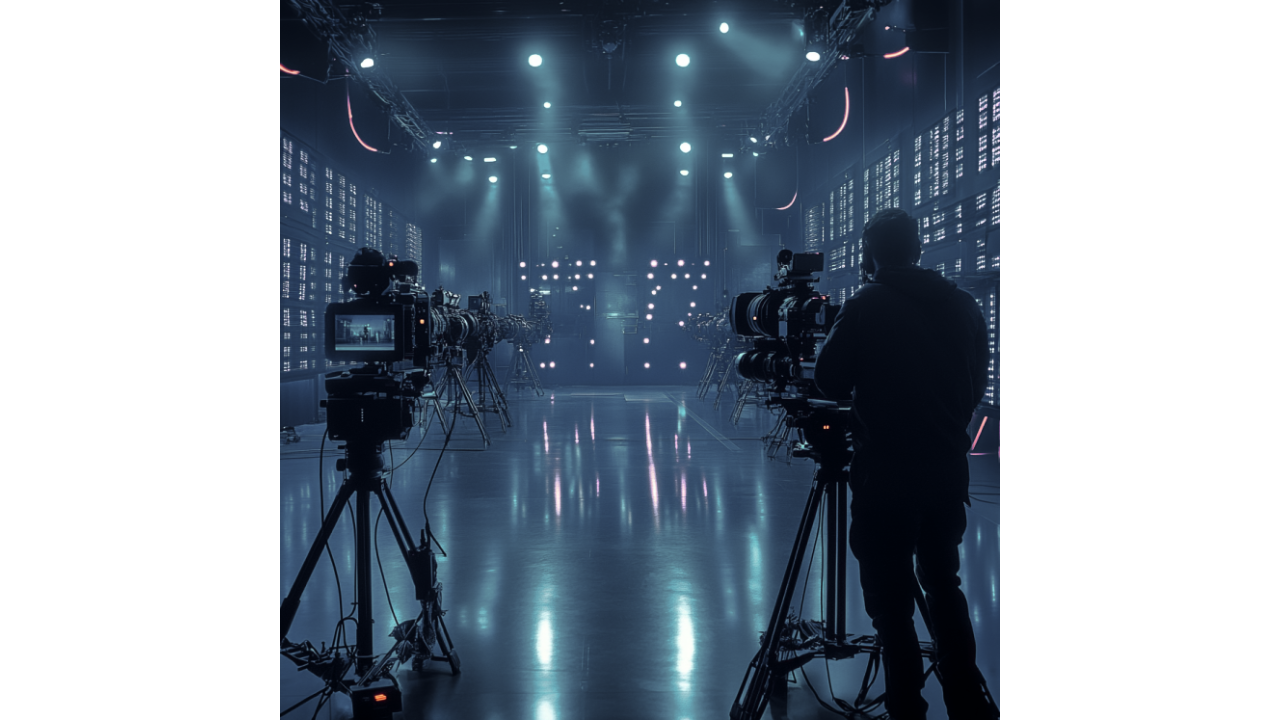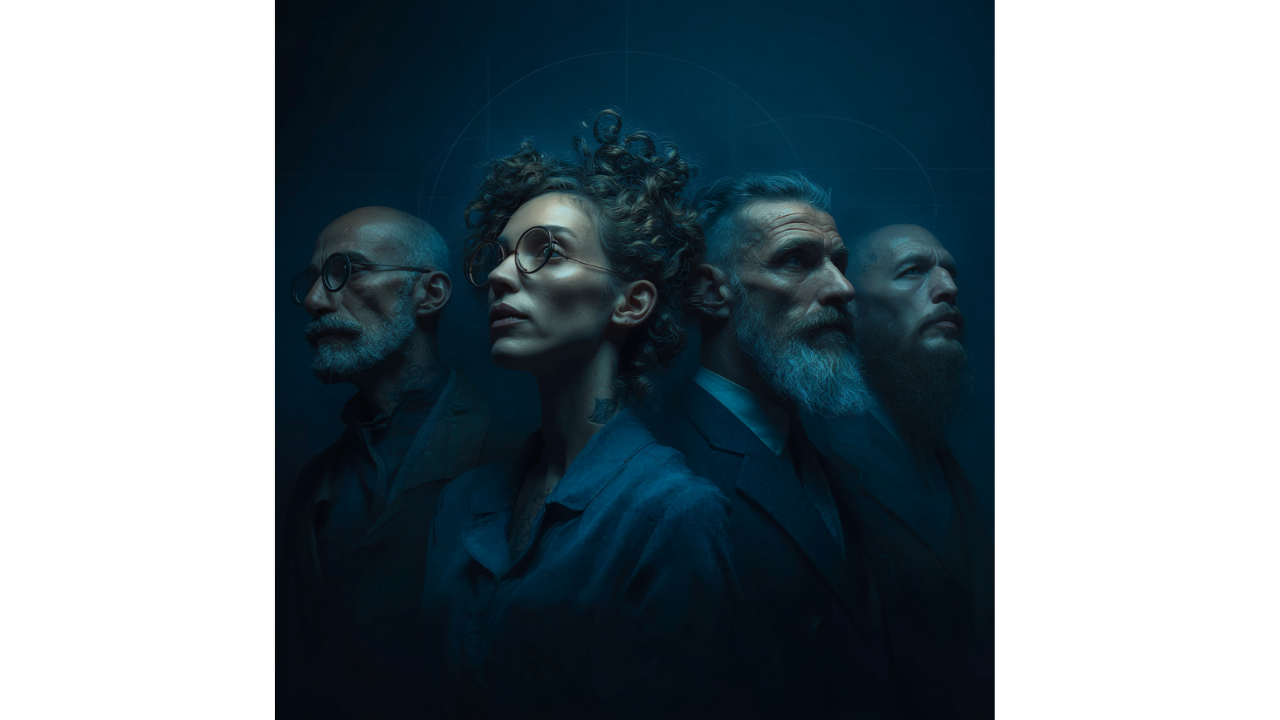Google's NotebookLM Gets Video Overviews
Google just dropped the productivity equivalent of a nuclear weapon, and most people are still using muskets. NotebookLM's new Video Overviews...

When Google unveiled Flow at I/O 2025, they positioned it as democratizing filmmaking for everyone. What they actually delivered was a sophisticated machine for converting human creativity into corporate efficiency metrics. With Veo 3's ability to generate 4K video with native audio and Imagen 4's text-to-image capabilities wrapped in an intuitive interface, Flow represents the final nail in the coffin of video content as a legitimate art form. We're not witnessing innovation—we're watching the systematic devaluation of decades of craftsmanship.
@aeyespybywinsome Progress or destruction? #flowai #videoediting oediting
♬ original sound - AEyeSpy
Google's marketing speak is breathtaking in its audacity. They claim Flow "empowers storytellers to explore their ideas without limitations" while simultaneously creating technology that eliminates the need for actual storytellers. The platform allows users to "describe locations, shots and style preferences" in natural language, reducing the intricate craft of cinematography to a ChatGPT prompt. This isn't empowerment—it's replacement with extra steps.
The video editing software market, valued at $3.09 billion in 2023 and projected to reach $5.13 billion by 2032, supports thousands of professional editors, colorists, sound designers, and visual effects artists. Flow threatens to compress this entire ecosystem into a subscription service that costs $19.99 per month. When Google boasts about "stunning cinematic outputs that excel at physics and realism," they're essentially announcing the obsolescence of everyone who spent years learning actual physics and realism.
Recent statistics paint a sobering picture: 14% of workers have already experienced job displacement due to AI, with creative industries particularly vulnerable. The U.S. Bureau of Labor Statistics reported a 20% year-over-year drop in professional services job openings in January 2025. Now Google wants to accelerate this trend by making video production as simple as typing a sentence.
What Google euphemistically calls "democratization" is actually the industrialization of creativity. Flow's "Camera Controls" feature lets users "master shots with direct control over camera motion, angles and perspectives" without understanding why certain angles create emotional impact or how camera movement affects narrative flow. It's like giving someone a Formula 1 car without teaching them the difference between a brake and accelerator—technically possible, but artistically catastrophic.
The platform's "Scenebuilder" option allows users to "seamlessly edit and extend shots, revealing more of the action or transitioning to what happens next." This reduces the art of editing—the invisible craft that creates rhythm, emotion, and meaning—to algorithmic continuity. Walter Murch spent decades perfecting the art of the cut; Google thinks they can replicate it with a prompt.
Even more insulting is Flow's "Asset Management" system, which treats creative elements like inventory in a warehouse. Characters, locations, and styles become "ingredients" to be mixed and matched rather than carefully chosen artistic elements that serve narrative purpose. This commodification of creativity transforms filmmaking from storytelling into recipe-following.
The World Economic Forum predicts that 40% of employers anticipate reducing their workforce between 2025 and 2030 wherever AI can automate tasks. Video production sits squarely in AI's crosshairs, with platforms like Flow making the economic case for replacing human creativity with algorithmic output irresistible to cost-conscious executives.
Consider the math: hiring a professional video production team for a commercial might cost $50,000-$100,000. Flow delivers similar output for $20 per month. The quality gap may be noticeable to industry professionals, but it's invisible to executives measuring quarterly performance. As one survey revealed, 75.3% of creatives disagree that "AI threatens job security," but their optimism feels dangerously naive when faced with Flow's capabilities.
The platform's early demonstrations show AI-generated clips that could "fool most people," according to industry observers. When AI-generated content becomes indistinguishable from human-created work to general audiences, the market forces become irresistible. Why pay for human creativity when algorithms produce acceptable results at fraction of the cost?
Google's Flow represents something more sinister than job displacement—it's cultural flattening. When everyone has access to the same AI models trained on the same dataset, creative output becomes homogenized. Veo 3 and Imagen 4 will produce variations on familiar themes, creating an echo chamber of algorithmic aesthetics that masquerades as diversity.
Real filmmaking involves risk, failure, and discovery. It requires understanding light, time, emotion, and the subtle interplay between technical craft and human experience. Flow reduces this complex art form to a series of prompts and parameters, stripping away the messy, unpredictable humanity that makes great video content transcendent rather than merely functional.
The platform's "Flow TV" feature—a showcase of AI-generated videos complete with prompts and techniques—reveals the dystopian endgame. Instead of studying Tarkovsky or Kurosawa, future "filmmakers" will study prompt libraries and parameter combinations. We're replacing film school with Google searches.
Every technological advancement requires trade-offs, but Flow's costs vastly outweigh its benefits. Yes, it might help small businesses create social media content more efficiently. But it also systematically undermines the economic foundation that supports professional video creators, while contributing to a cultural environment where "good enough" AI output replaces genuinely inspired human creativity.
The most tragic aspect isn't the job losses—it's the stories we'll never see. When video creation becomes commoditized, we lose the perspectives that can only emerge from deep technical knowledge combined with lived human experience. We trade the possibility of the next great filmmaker for the convenience of instant content generation.
Flow isn't just another tool—it's a philosophical statement about the value of human creativity in corporate America. And that statement is: it's expendable.
At Winsome Marketing, we believe human creativity and strategic thinking remain irreplaceable. While others chase AI shortcuts, we're helping clients build authentic brand narratives that connect with real human emotions. Contact us to discover how genuine creative strategy outperforms algorithmic efficiency every time.

Google just dropped the productivity equivalent of a nuclear weapon, and most people are still using muskets. NotebookLM's new Video Overviews...
-3.png)
We've been hearing about quantum computing's "potential" for two decades. Google just turned potential into proof.

Google has updated the Gemini app with a feature that lets users upload multiple reference images for a single video generation prompt. The system...